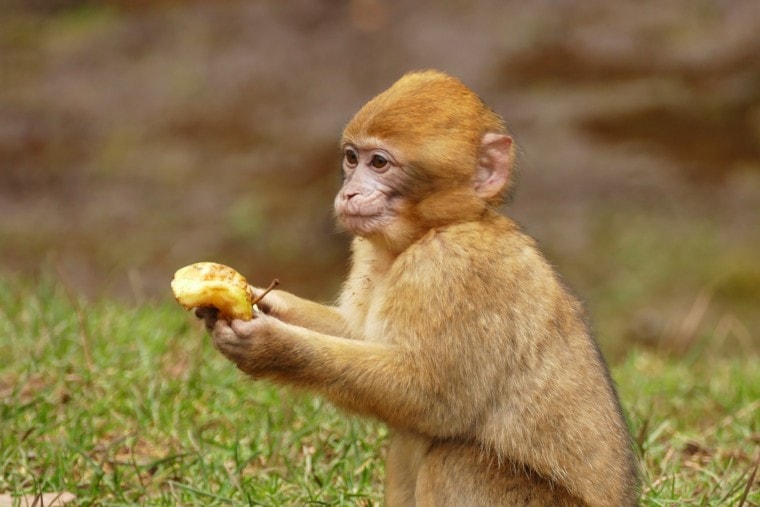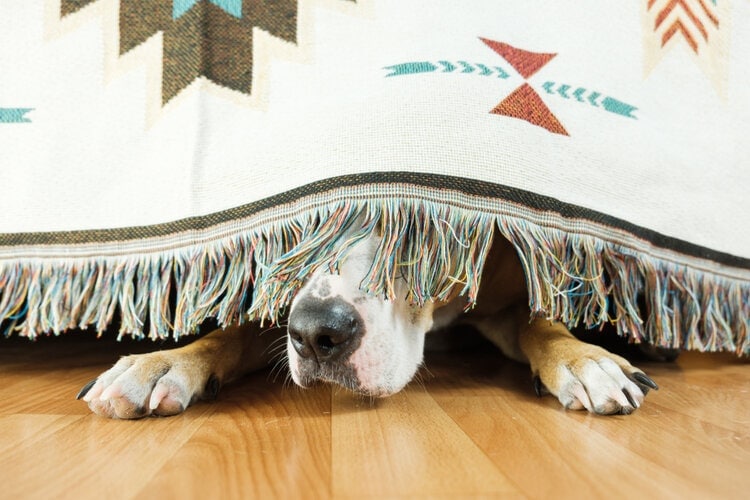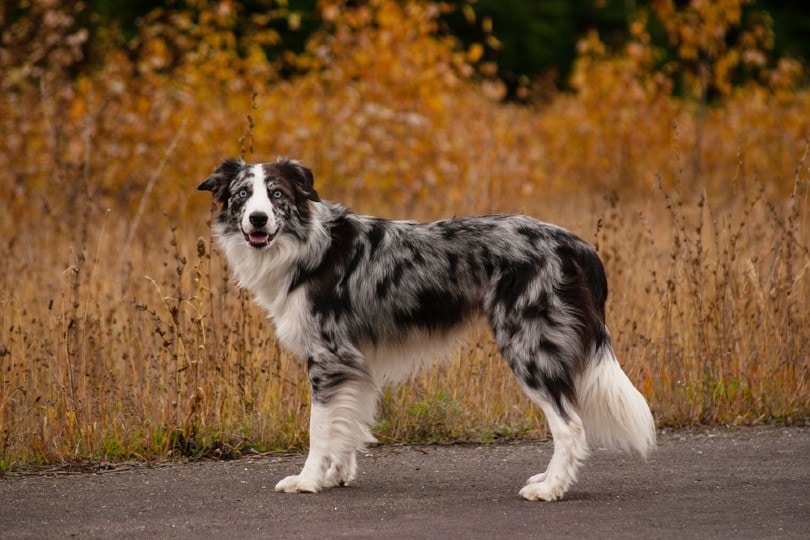
Macaque monkeys offer a dose of cuteness that makes it hard for anyone to resist. Their small size, adorable face, and lovable ways often make people want to bring them home to keep as pets. The big question, however, is do macaque monkeys make good pets?
Although we don’t recommend owning a monkey, we do understand the appeal these creatures emit to the masses. This is especially true for the macaque. Unfortunately, when bringing a macaque into the home, you’ll find yourself facing quite a few challenges you may not have expected, for that reason macaque monkeys don’t make good pets.
Read on below to learn more about macaque monkeys and learn why they might not be the best animal to have as a pet.
 The Origins of the Macaque Monkey
The Origins of the Macaque Monkey
The macaque monkey, Macaca sylvanus, is native to North Africa, Asia, and Gibraltar. These animals are very adaptable to their surroundings which makes it possible for them to live in rainforests, mountainous terrain, and even urban areas. These animals also feel comfortable co-existing with humans. Often groups of macaques will make their way into small towns and feed on local farms and vegetation.
There are 23 subspecies of macaque monkeys throughout the world. Most of these species, minus the crab-eating macaque, have a diet consisting of fruits, vegetables, roots, leaves, and even peanuts. Macaques have been known to eat insects and will even dine on cooked foods when available or offered.

The Social Dynamics of Macaque Monkeys
Macaque monkeys are very social animals. In their natural habitat, they are matriarch led although instances of strong males leading groups have been observed. These animals prefer to live in large groups. In many instances, you may find up to 40 or 50 macaque living and thriving in one family.
Female macaques continue living with the family in which they are born. As juveniles, they will socialize and spend time with others in a group of their age. Once sexual maturity is reached, male macaques will leave their original family in hopes of joining other groups to mate and prosper. Those males who aren’t accepted by other families tend to live solitary lives instead of returning to their original group.
Characteristics of the Macaque Monkey
Macaque monkeys are similar to other species in appearance. Like most monkeys, the macaques have long legs and arms. When it comes to their tails, the macaques can have varying lengths depending on their species with some having no tail at all. Black or brown fur is the prominent coloration of these small monkeys. Their small size is one of the main reasons enthusiasts hope to bring them into their homes to keep as pets.
Housing a Macaque Monkey
Bringing a wild animal into your home is normally frowned upon. Although they are cute, macaques monkeys are still considered wild animals. If you choose to co-exist with macaques, there are a few things you will need to keep in mind.
- You May Also Like: Do Finger Monkeys Make Good Pets? What You Need to Know!

Enclosures
Inside a home, the macaques monkey needs a large enclosure. Due to their lives in the wild, any primate being brought into an inside living situation needs room to move and act like a monkey. It is recommended that macaque monkeys have enclosures of at least 30 square feet. These enclosures should be designed to keep your pet kept safe while having adequate space for activities and socializing.
If not kept secure, these small monkeys can hide throughout your home. If your monkey has not had time to acclimate to its surroundings or has not been properly trained, you could find yourself searching throughout your home for hours in hopes of recovering your lost companion.
Trusted housing also keeps your macaques safe from possible escape outdoors. These monkeys love to climb and spend time in the trees. If they find their way outside, it isn’t uncommon for them to reach the high ground or even venture onto power poles and lines which is extremely dangerous for any animal.
Dietary Requirements
As with any pet you bring into your home, you are responsible for ensuring a healthy and balanced diet for your macaques. It is important to keep a variety of foods available. Switching between high protein treats, fresh fruits, and vegetables, foraging foods such as leaves, plants, and roots along with commercial old-world primate diet food. The macaque monkey is dependent on a proper balance of these foods to stay on track and grow to be healthy.
Like with other pets, adequate water is a must. When caring for a macaque monkey having fresh water constantly available is advised. This water should be changed out quite often to allow them access to hydration whenever they feel the need.

Training a Macaques Monkey as Your Pet
Training any animal for life inside the home requires not only patience but time. This is especially true for life with macaques. Although social and engaging, properly training a monkey can take quite a bit of time to accomplish.
Leash training is a popular technique used by those who own monkeys. When adopting this method, it is important to use tools that are safe and comfortable for your monkey. Nylon collars may feel better on your macaques neck and aren’t as susceptible to shrinkage as other materials.
When introducing leash training to your monkey, allow them time to get associated with their collar and leash before beginning. Allowing your monkey to spend time out of their enclosure with the leash attached will help with this process. Your monkey will learn their leash and collar are not bad things and will not show major reactions when being placed on them.
Keep Your Distance!
While training it is best to ask friends and family to keep their distance. The last thing you want when working with your pet is for them to become frightened. Lots of people being around may do this. Training sessions are best done with only the owner and pet. This will also help build a great relationship between you and your macaques.
During the training process, take your macaques outside quite often. This is a great technique for acclimating your pet to exploring the outdoors with you while also helping them learn their leash and collar are intended for good things.

Will a Macaques Monkey Bite?
Like with any wild animal, a macaques monkey is known to bite their owners. Bringing a monkey into your home is both exciting and scary for the animal. In certain situations, this could lead to bites or scratches out of fear and confusion. This is something anyone who decides this is the pet they want should keep in mind.
If you sense fear in your macaques, give them time to calm down and assess their situation. Don’t immediately reach into the cage when bringing them into their new home. Taking the time to sit near your macaques, talk softly with them, and allowing them to become used to your presence is a great way of avoiding unwanted bites or situations where your macaque is under extreme stress.
What If a Macaque Bites Me?
When bites occur, it is important to remain calm. Do not retract your hand quickly. This motion can make the situation worse for both you and your monkey. If your pet is outside of the cage, taking immediate action to return them to their enclosure is the best course of action. The macaque is a highly intelligent creature who will begin to associate its bad behavior with losing its exploration privileges.

The Costs of Raising a Macaque Monkey
All pets are a lifelong commitment. With the macaque monkey having a lifespan of up to 30 years this is especially true for this particular pet. During this time, you’ll find yourself facing quite a few costs that in many instances may become quite substantial.
If you have a macaque in your home, you’ll need a constant supply of food and diapers. Yes, these monkeys should be kept in diapers a majority of the time. This is the help keep their enclosures, and your home, free of urine and feces. When combining the costs of these diapers and the well-balanced dietary needs, you are already looking at quite a bit of money.
The enclosure required for a macaque can be expensive as well. Offering a sizeable area for your monkey is the best way to avoid boredom and other problems with behavior. If you truly want your pet to be happy, having fun additions to the enclosure such as toys and climbing gear should be considered.
Veterinarian care for your macaque can be quite expensive as well. Depending on the area you live in, finding a vet that is well-versed in primate care may become difficult. If you are planning on bringing one of these pets into your home, start the search for a trusted veterinarian now. This will give you an idea of their charges, the required vaccines and checkups, and travel expenses you may incur.
Another thing to keep in mind when looking at the costs of caring for a macaques monkey is the damage they may do to your home. Bringing any wild animal inside should be considered dangerous. Like with any pet, monkeys may have tantrums or act out. Damage to your walls, floors, furniture, and other items in the home is very possible. When this happens, and most likely will, you’ll be responsible for paying for repairs and replacements when needed.
 Are Macaques a Good Pet?
Are Macaques a Good Pet?
Having a monkey in your home is exciting, but when looking at all the requirements and possible dangers of introducing a wild animal into your home, macaques monkeys do not make good pets. While you may feel a close connection to your pet, they are still wild animals at heart and deserve to live in their natural habitat. This realization should be kept in mind when decided whether a macaques monkey is the pet for you.
Featured Image Credit: InspiredImages, Pixabay
 The Origins of the Macaque Monkey
The Origins of the Macaque Monkey





